"A man ought to read just as inclination leads him, for what he reads as a task will do him little good."—Samuel Johnson
| Reviews | Limericks | Six Words | Buy Nothing |
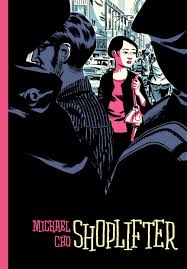 31 October 2014
31 October 2014
Shoplifter
Michael Cho
The story, of a young woman living in a big city who dreamed of writing novels but instead feels stuck at her job writing copy for an ad agency, doesn't cover any new ground. But this graphic novel, illustrated with black ink on Pepto-Bismol pink, displays Cho's sharp ear for dialogue and keen eye for gesture. The only problem with it is that it's much too short.
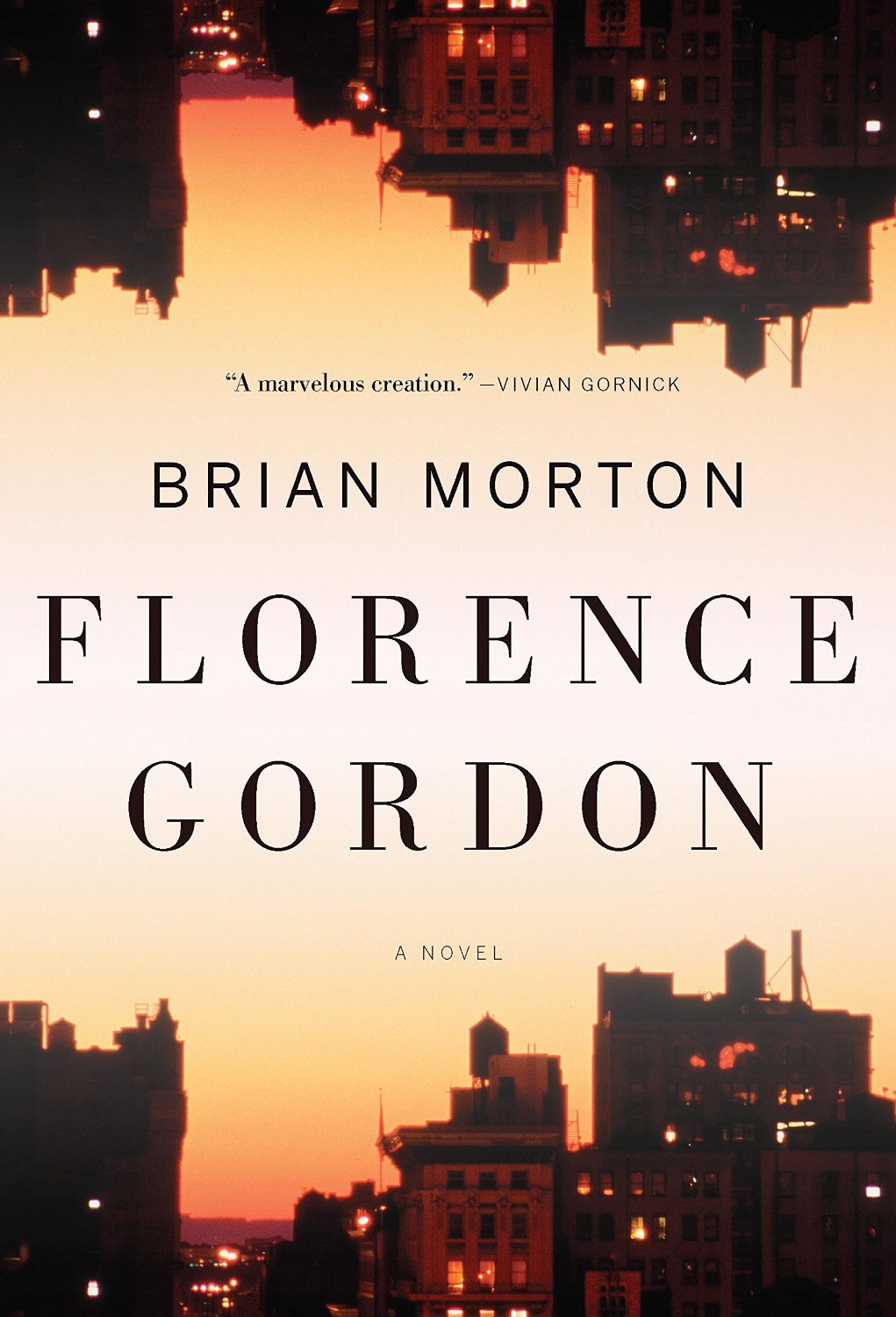 21 October 2014
21 October 2014
Florence Gordon
Brian Morton
Set in Morton's usual territory, the world of left-wing Manhattan intellectuals, this novel centers on a second-wave feminist thinker finally getting recognition for her work, but also includes her son, his wife, and their daughter—Morton likes to make sure multiple perspectives are represented. He writes in short, declarative sentences, making up short paragraphs, forming up short chapters, which works out well because it's a novel to be savored, even sentence by sentence. It's also a style well-suited to Twitter, but I'm not sure how he'd feel about that, as one of the novel's themes is ambivalence about technology. Actually, the main theme is ambivalence in general, extending even to the author. Characters will frequently make an observation, and then qualify it with something like, "She wasn't sure what she meant by that, but it sounded right." They may be uncertain of themselves, but they are hyper self-aware, so much so that they assume the thoughts of others must be focused on them, sometimes to comic or tragic effect.
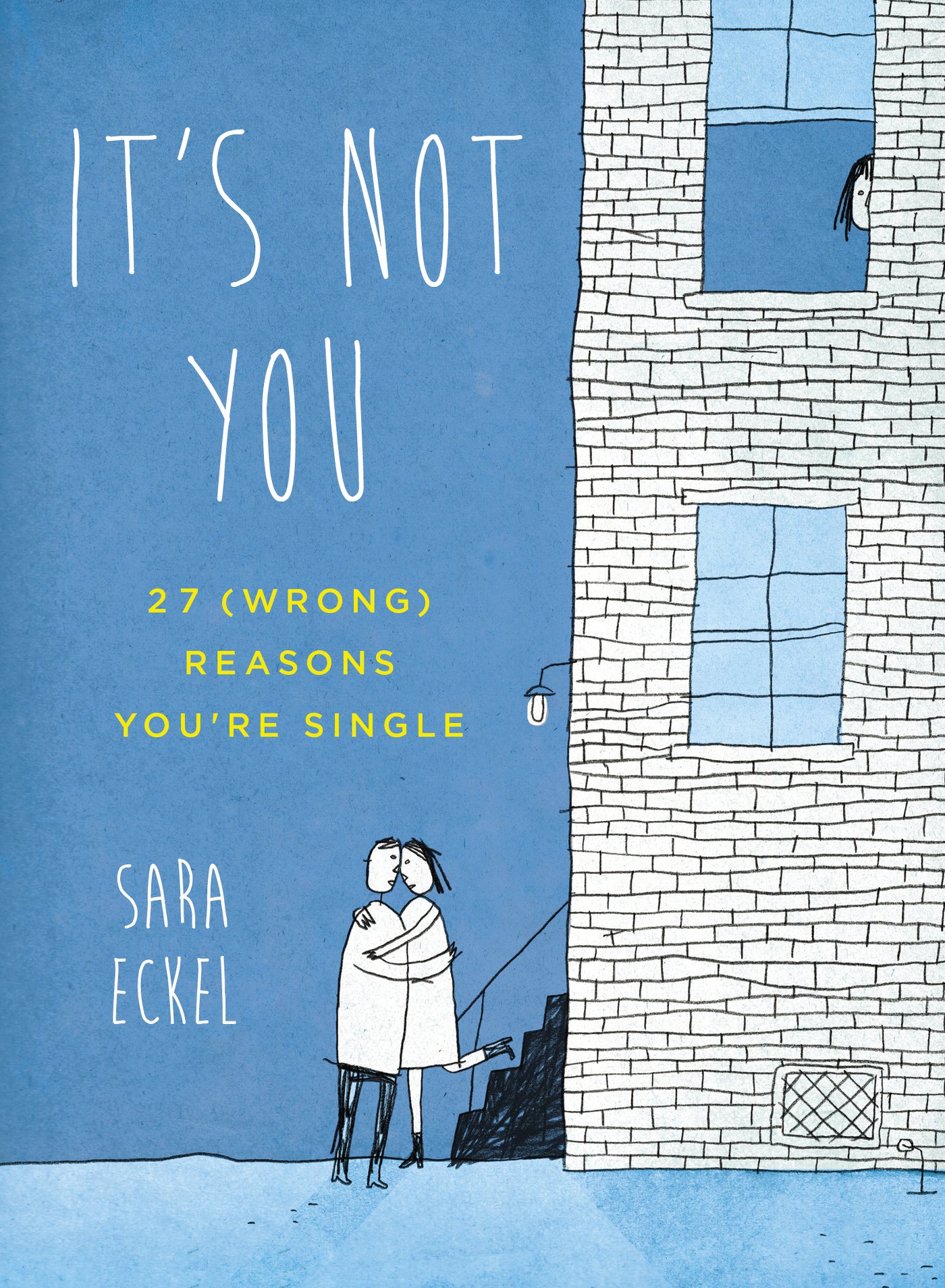 21 October 2014
21 October 2014
It's Not You: 27 Wrong Reasons Why You're Single
Sara Eckel
"Why are you single?" asked Eckel's date. Of course, a guy who would ask someone that has, tellingly, probably never been asked that himself. But it's one of the indignities that single people, particularly women, have to put up with. Before marrying in her forties (she notes that no one has ever asked her why she is married) Eckel spent many years without a partner, years of dating and getting advice and trying to figure out what was wrong with her. She has put it all together in one wise and witty manifesto that tears apart the mixed messages single people receive. You're not supposed to admit you want a relationship, lest you seem desperate. But you have to "know what you want." But you can't be too picky and you have to be open. She debunks some myths: "journaling" is not good for you; soaking in a bathtub with scented candles and ruminating on why you're alone won't make you feel better. She's a student of Buddhism, and frequently turns the conversation to Buddhist ideas, but in an accessible way. And she writes beautifully about the "sweet side of longing," how, when one is single and looking, each encounter, even a platonic one, is magnified; she says that's what love is. Refreshingly, she doesn't have a method to help you find a partner, and she doesn't tell you to be happy being alone: "If you feel sad sometimes it's not because you're single, it's because you're alive." Eckel thinks meeting that person who is right for you is basically a matter of luck.
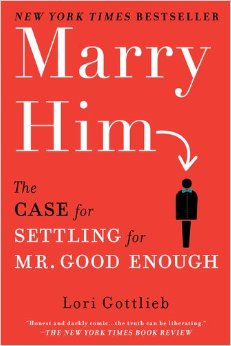 21 October 2014
21 October 2014
Marry Him: The Case for Settling for Mr. Good Enough
Lori Gottlieb
What if you don't get lucky? We all agree that being in a bad marriage is worse than being alone. But is being in a just-okay marriage better than being alone? Some say that arranged marriages might be happier on the whole than "love matches," suggesting that you're better off grabbing a seat than ending up standing alone at the end of the game of marriage musical chairs. Waiting to marry might mean you're wiser, more mature, a better mate—but by then all the eligible partners might be taken. Gottlieb recommends marrying the nice-enough guy in time to have children with him, as she wishes she had. She says she passed up lots of decent men holding out for fireworks, and now she's stuck spending Saturday night with her single female friends. If you are not one of Gottlieb's female friends, you can count your blessings. She'd just be looking over your shoulder at the door. Meanwhile, in MWF Seeking BFF: My Yearlong Search for a New Best Friend, happily married Rachel Bertsche is envious of those with close female friends and sets out to find one of her own The grass is always greener.
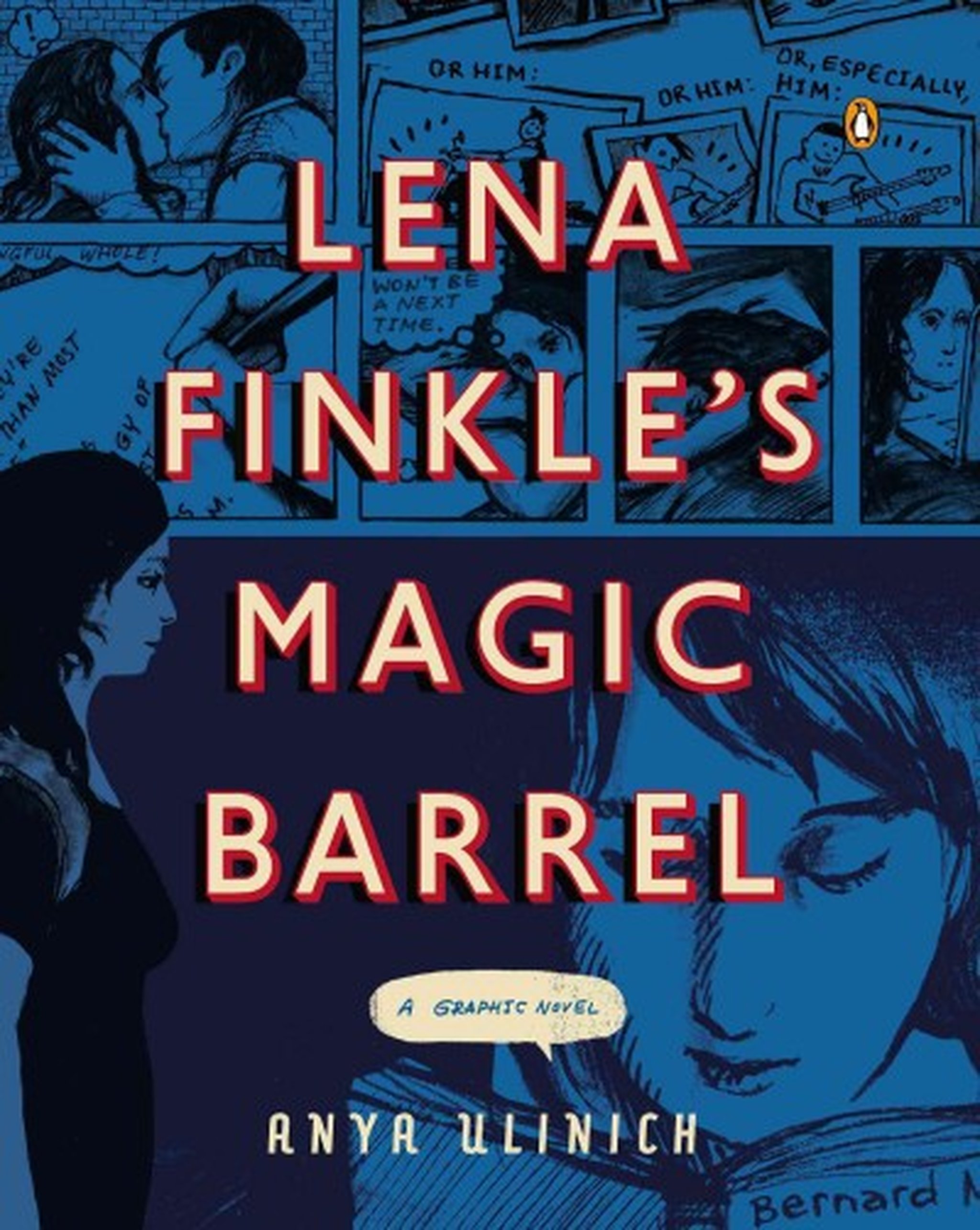 14 October 2014
14 October 2014
Lena Finkle's Magic Barrel
Anya Ulinich
Lena Finkle, heroine of this smart, funny, and very wordy graphic novel, married her first husband very young and her second soon after divorcing her first. When she divorces again in her late thirties and ventures into internet dating, she has to discover in midlife what most learn to deal with in early twenties: charming men who, despite appearances to the contrary, are not at all interested in being anyone's boyfriend. She also travels back to Russia to visit the high school boyfriend she left behind in a kind of time warp. I expect Finkle is an autobiographical character; this novel reads like a deeply felt memoir and feels so real that when Finkle mentioned her first book I started to track it down before I remembered that she was a cartoon.
While we're talking about dating (see above): Unfortunately, as in far too many tales from the dating trenches, Lena Finkle seems unable to tell the difference between an a$$hole and an oddball. There are plenty of jerks out there that should be passed over for justifiable reasons. The fact that a man makes his own chain mail, for example, doesn't mean there's anything at all wrong with him. It means he's interesting. Rejecting someone out of hand because his interests don't fit in a narrowly defined range, and then using him for a cheap laugh*, might be an indication of "why you're still single."
*See my least-favorite rom-com movie trope, the montage of dorky dates, which almost always includes a magician. Why the heck would you not want to date a guy who could do magic tricks?
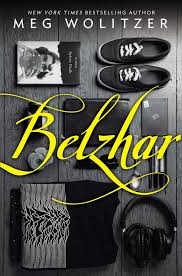 14 October 2014
14 October 2014
Belzhar
Meg Wolitzer
This young adult novel is set in the present, but on a campus where no cell phones or internet are allowed, which allows the story to unfold without the fracturing distraction of constant connectedness. As with many novels, young adult ones in particular, the names sound awkward. Matt Kesman, Dana Sapol—they just don't sound quite like real people. It occurred to me that writers don't want to accidentally use a real person's name, so they choose something that sounds almost like a name but not quite. Anyway, it's a great story, perfectly executed, exploring adolescent crisis, guilt, and depression, while leaving alone what can't be explained: the supernatural, and the cruelty of teenagers.
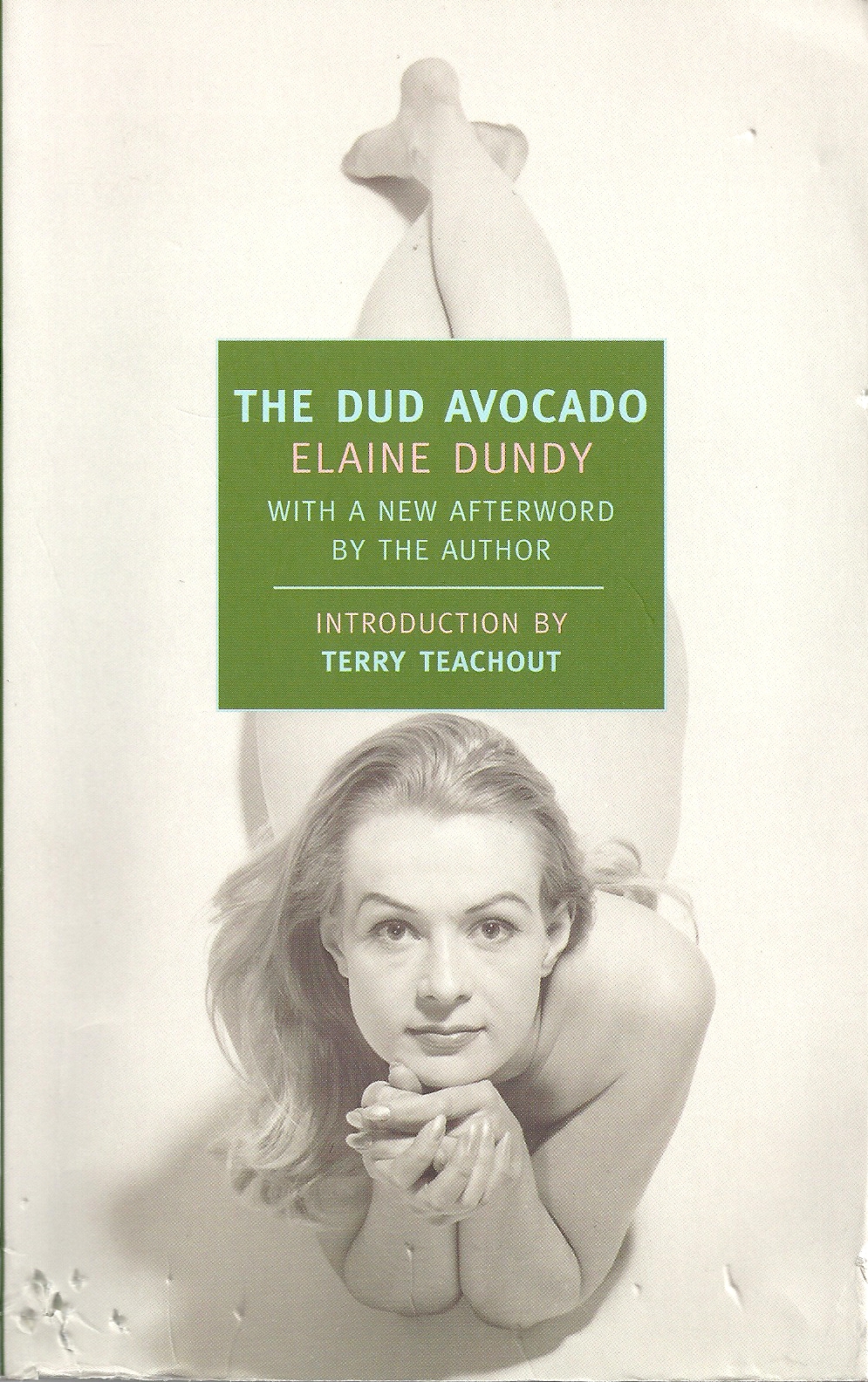 14 October 2014
14 October 2014
The Dud Avocado
Elaine Dundy
I can't believe I had never even heard of, much less read, this book until I stumbled across it on Amazon last month. It was well received on publication in 1958 and apparently has been revived several times, yet I missed it until now. Don't let that happen to you! Sally Jay Gorce is a young college graduate living in Paris on the generosity of her wealthy uncle. She's a self-described "spectator at the Banquet of Life...a scientist dropped into the zoo at feeding time": a narrator well aware of her own unreliability, running around Paris in an evening gown in broad daylight, falling in love, trying to break into the movies. It's fresh and sparkly and dark and honest all at once, funnier than Wodehouse and bolder than many contemporary novels.
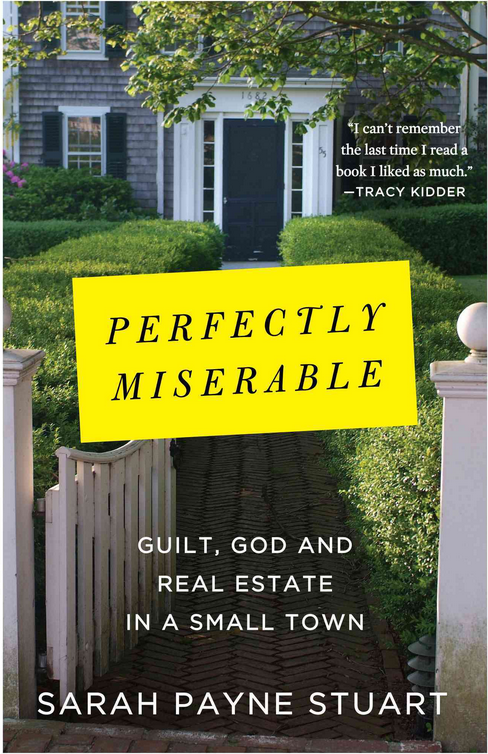 14 October 2014
14 October 2014
Perfectly Miserable: Guilt, God, and Real Estate in a Small Town
Sarah Payne Stuart
Stuart hasn't done much with her life except write about her family and their money and their mental illnesses, while spending money she doesn't have trying to impress them. She gets off a few good lines and shares a couple interesting anecdotes about New England history, but she just doesn't have a whole lot to say. Each chapter of this book is just another version of the same thing told in a slightly different way, with a picture of a different house she bought and couldn't afford, and by the end the reader has been made a little crazy as well. The best parts are her descriptions of formidable New England ladies in their L.L. Bean coats, so thrifty that they wipe their hands on their pants rather than use her hand towels. Stuart doesn't think much of them, but at least they know how to live within their means.
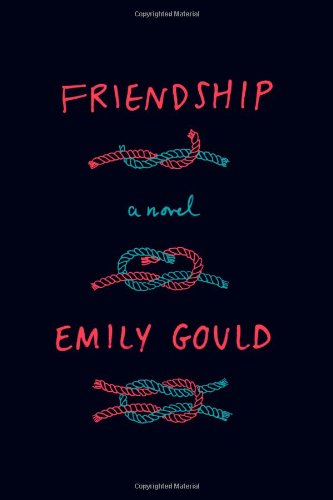 14 October 2014
14 October 2014
Friendship
Emily Gould
I am glad for writers like Gould who don't shy away from confronting the problem of how to support oneself, but as alien as are sitcom characters who can afford fabulous Manhattan apartments on barista salaries, or romance novel heroines who effortlessly manage glamorous careers, even stranger are characters who quit their jobs on a whim, and, unable to pay their rent, continue to take themselves out for Jameson and sushi and refuse lucrative job offers as a matter of pride. Gould gets a lot exactly right about being young and uselessly educated in New York, but there's room for stories about real people who are neither thoughtlessly rich nor irresponsibly broke.
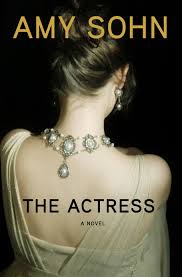 14 October 2014
14 October 2014
The Actress
Amy Sohn
I never figured out how seriously Sohn wanted me to take this novel. At times it feels like she's writing it on a dare, seeing how odd and vulgar she can get without turning off the reader. Yet it's not a very original story: a young actress hits it big and gets the attention of a hot leading man, whose glamorous and somewhat mysterious life doesn't easily conform to a relationship. It's not clear to me why Sohn, who has delivered sharp contemporary social satire in her previous novels, saddled herself with an uninteresting setup in this one. It feels like she's playing with paper dolls that she keeps banging together to see what will happen. But it's worth reading for lines like "Things aren't perfect with Reggie and me...she has a drinking problem and also a bit of a bread addiction, but I know she loves me."
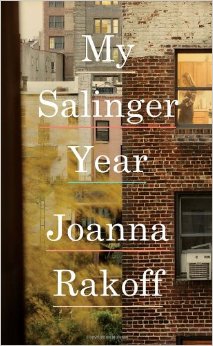 14 October 2014
14 October 2014
My Salinger Year
Joanna Rakoff
Neither Salinger's reclusiveness nor Rakoff's life are that interesting, but she's a good writer. This memoir is set in the mid-1990s, in the world of publishing before it really began to decline (isn't that what they're perpetually saying about publishing?), in New York City before the internet took hold—her office doesn't even have a computer when she starts working there (as usual, less internet=better story). She works for J.D. Salinger's agent, and, among other assigned tasks, reads his fan mail. While not at work, she lives with a lousy boyfriend in an unheated apartment, missing her ex-boyfriend that she dumped for reasons that aren't quite clear, and reads Salinger's novels for the first time. It's a beautiful, inward-looking book.
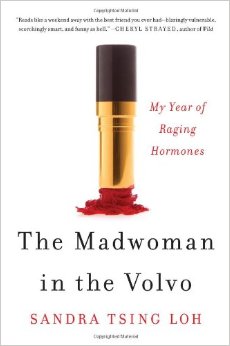 14 October 2014
14 October 2014
The Madwoman in the Volvo: My Year of Raging Hormones
Sandra Tsing Loh
Loh is usually my delicious dessert at the end of Atlantic Monthly (unless they're serving hard liquor in the form of Caitlin Flanagan), and this book is a hilarious feast. It's her memoir of leaving her husband for her business partner and best friend, but not exactly for happily ever after. Meanwhile, her elderly father is a loose cannon and she's trying to figure out how to manage menopause. Also, she kind of lives in her car. I wouldn't want to live her life, but I sure wish I could invite her over for dinner.
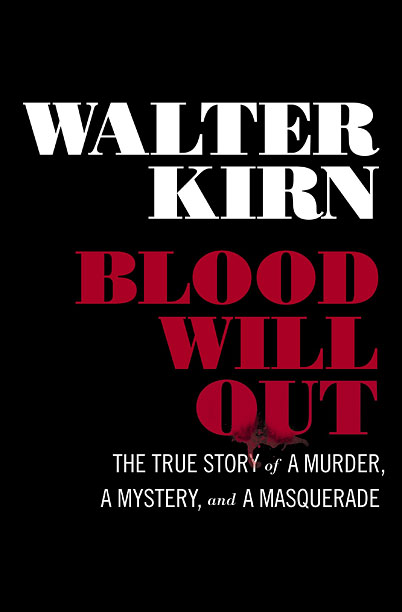 14 October 2014
14 October 2014
Blood Will Out: The True Story of a Murder, a Mystery, and a Masquerade
Walter Kirn
Can we really believe that Kirn believed everything his friend Clark Rockefeller told him? Do "Rockefellers" really go around calling themselves "Clark Rockefeller" and handing out George W. Bush's private telephone number? How can a writer of Kirn's caliber be such a terrible observer and judge of character? Or did he see right away what a terrific book he was going to get out of it? He doesn't quite deny it. Though he probably didn't think his new best friend was going to be charged with murder.
Another writer gets mixed up with an accused murderer: True Story
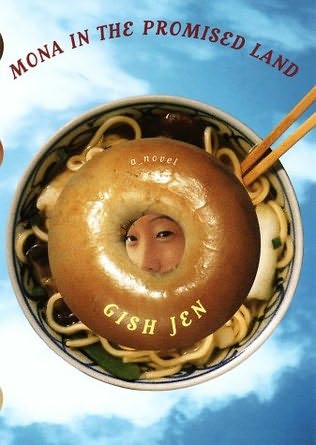 14 October 2014
14 October 2014
Mona in the Promised Land
Gish Jen
Mona, the child of Chinese immigrants, is growing up in Scarsdale, NY, in the late 1960s. Most of her friends are Jewish, and she decides she wants to be Jewish, too. Her Jewish boyfriend, however, wants to wear dashikis and live in a teepee. The kids play at being radicals, driving around in a van and inviting a restaurant worker and a bunch of his friends to move in while the parents are on vacation. Jen has an offbeat style that turned me off when I picked this book up when it came out, but if you relax into it, it works.
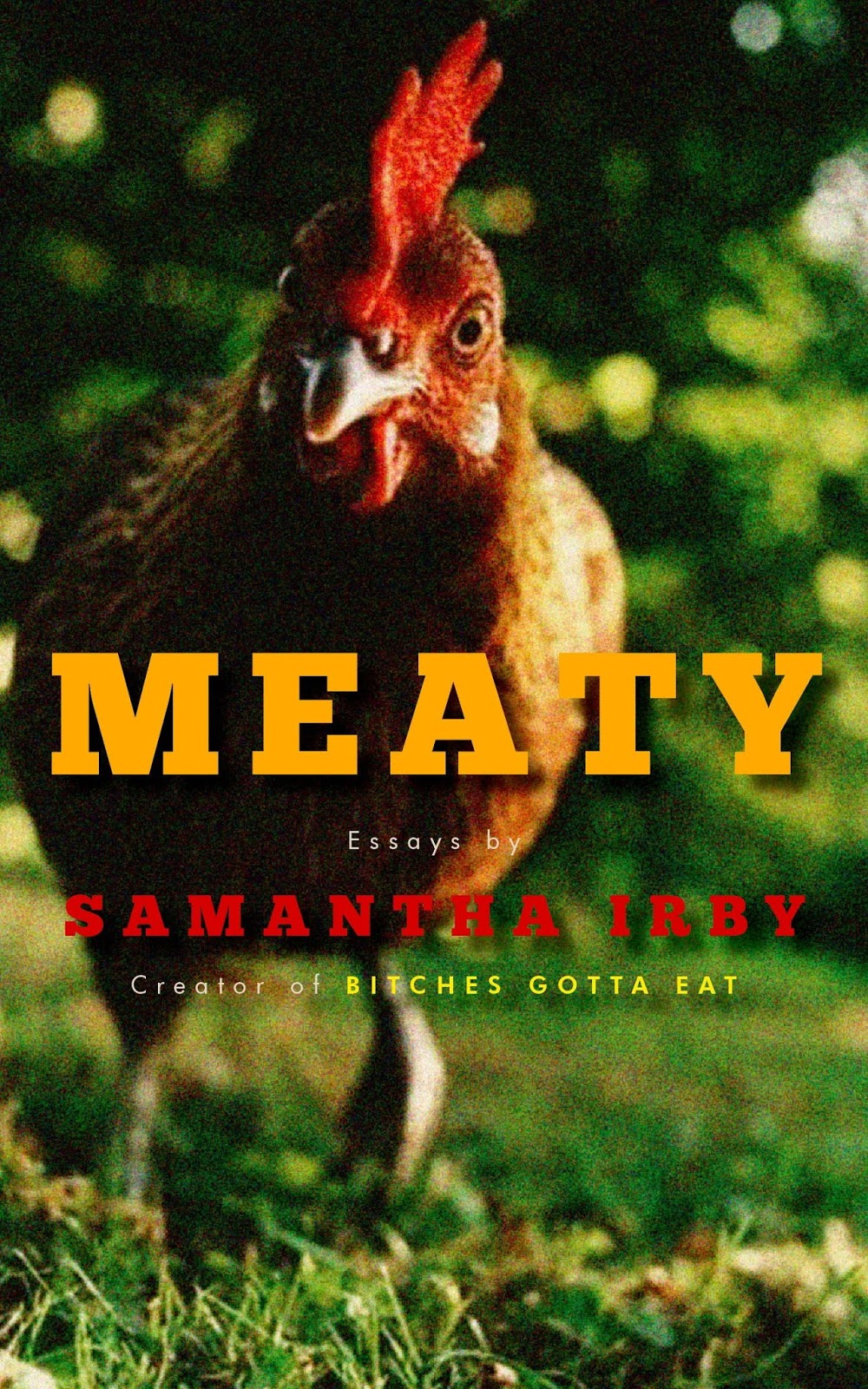 9 March 2014
9 March 2014
Meaty
Samantha Irby
Terrible boyfriends, confessions of bad habits, and the need to lose weight have supplied the fodder for many a thirty-something woman's personal essay collection, but Irby is way funnier than most. She also had a much more difficult childhood than most, but she's not one to make excuses for herself or anyone else. She's fat because "I eat bad things and go to sleep immediately afterwards." She's happy to share all of the details of what it's like to live with Crohn's disease, what's under her toenails, and much, much worse. And she doesn't seem worried about offending anyone: "Black people don't really believe in recycling... if there weren't so many white people around all the time I would literally be standing outside with a can of hairspray spraying that s--t at the g--d-mned sun." [expurgations mine] It's decidedly NSFW and way too gross to read while eating, so best to enjoy this one alone on the couch in your granny panties, where you can laugh as loud as you want.
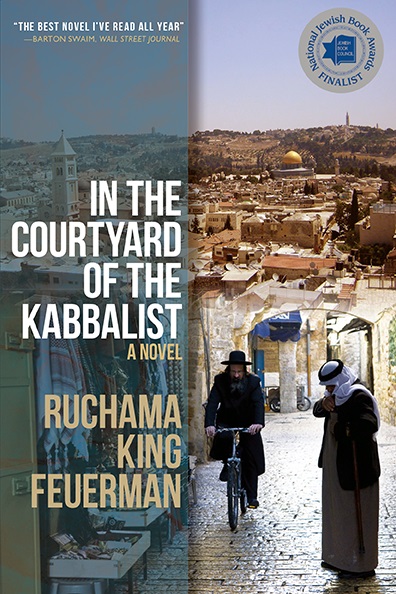 23 February 2014
23 February 2014
In the Courtyard of the Kabbalist
Ruchama King Feuerman
Isaac, a fortyish haberdasher from Brooklyn, moves to Israel to escape the bitter taste of his failures. He becomes the assistant to a Kabbalist, helping the rabbi dispense wisdom to the many lost souls who gather in his courtyard seeking advice. Meanwhile, Mustafa, an Arab Muslim rejected by his family because he was born with a twisted neck, works on the Temple Mount as a custodian. Their paths cross, along with that of a young woman who came to Israel seeking a deeper connection to Judaism than the secular life she grew up with. She and Isaac are drawn to each other, but Isaac is held back by his doubts and fears, committed to helping others but unable to change himself. When Mustafa finds an ancient Jewish treasure on the temple mount, the question is to whom it belongs in this embattled land, who can trust whom, and what each of them might be willing to fight for. As in her first novel, King brings Israel to life; every page makes you taste the oranges and smell the olive trees and feel the jostling of a crowded city bus. The story is laced throughout with bits of wisdom from both the Talmud and the Koran, and even if the Jewish characters are more fully fleshed out, in this moving and hopeful novel there is plenty of human weakness—and transcendence—to go around.
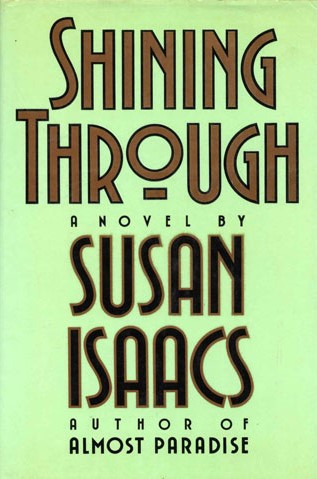 23 February 2014
23 February 2014
Shining Through
Susan Isaacs
I read recently that Jennifer Weiner was inspired by Susan Isaacs, particularly by this novel, and it makes sense. Along with the same gift for storytelling, I see the same toughness in the main character, the same bitterness at those she perceives as more fortunate than herself. In this case, those she exacts revenge upon are not just prettier, thinner, better-dressed women but actual Nazis. Isaacs makes this story of a secretary from Queens who infiltrates Germany as a spy during the Second World War easy to believe and hard to put down.
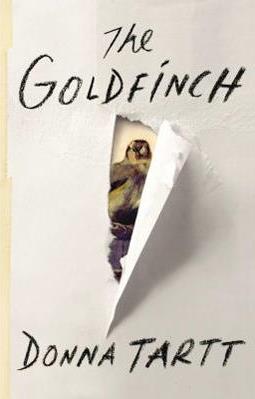 23 February 2014
23 February 2014
The Goldfinch
Donna Tartt
I had to make a New Year's Resolution to stop telling people to read this book. It is even better than The Secret History, which is saying something. Although it is set in the present—and even the near future—various organically imposed constraints allow it to avoid the thought-killing constant connectivity of the internet and cell phones and give it the dark, rich feel of a thriller set in the past. Even after 771 pages I wasn't ready for it to end. Tartt is known to take her time writing each of her books, and this one was worth waiting a decade for.
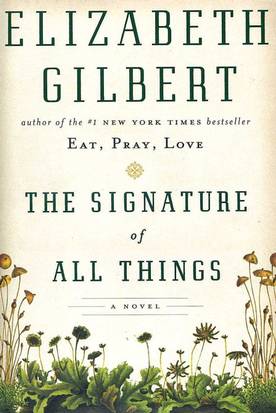 23 February 2014
23 February 2014
The Signature of All Things
Elizabeth Gilbert
Much like her first novel, with an odd but determined heroine, but more ambitious. This book is about adventures in the South Seas and also about a scholar who spends most of her life studying mosses on her family's estate in Pennsylvania. An unpretty 19th century woman, even one well-educated by her wealthy father, has few options in life—until she gets to work on the problem of her age. Gilbert is an assured writer, a playful storyteller and a broad thinker, blending philosophy, sex, the natural world, and delightfully goofy characters in one sensational package. Just when you think you know where this story is going, it turns a corner and ends up someplace even better.
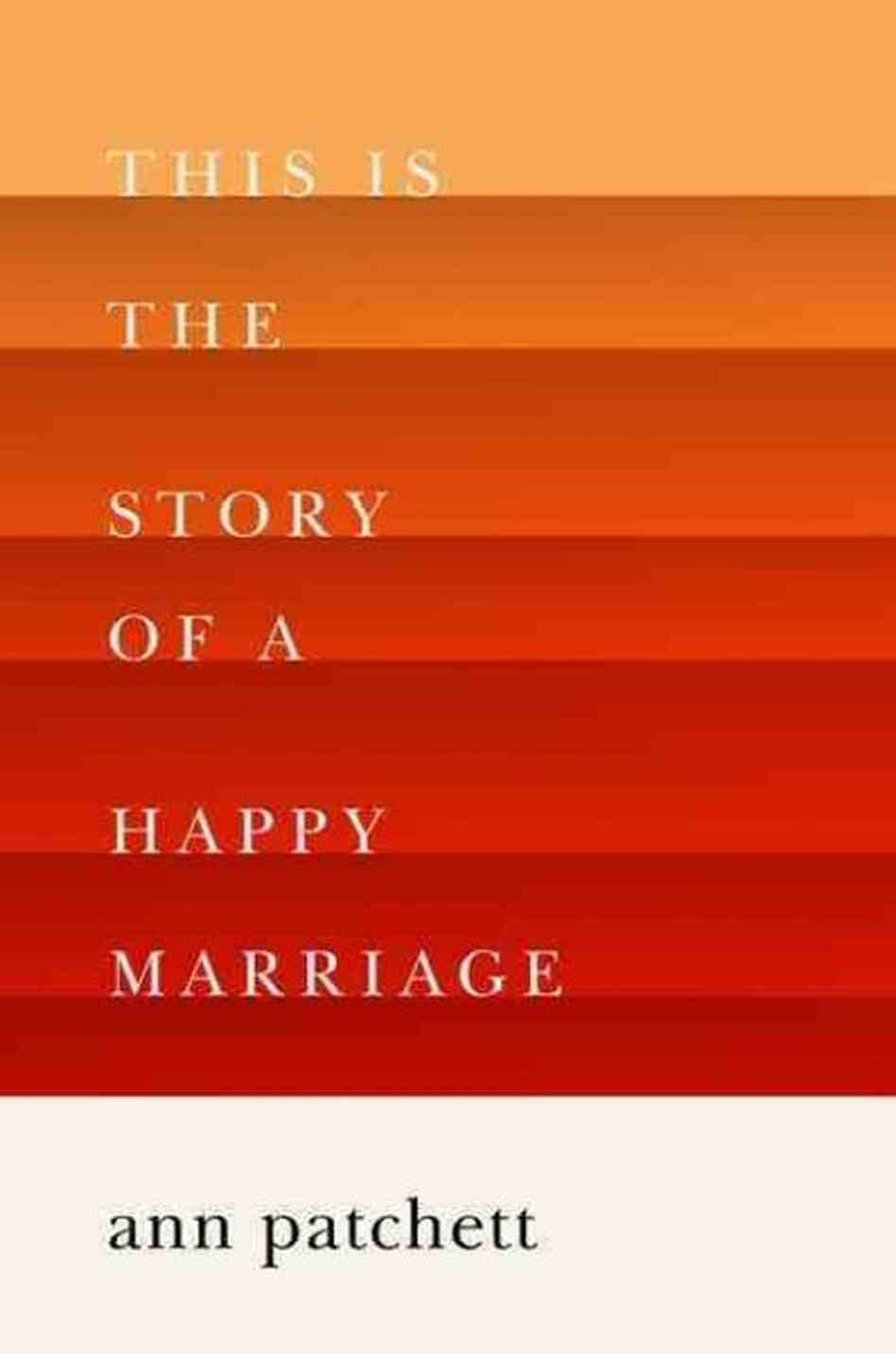 23 February 2014
23 February 2014
This is the Story of a Happy Marriage
Ann Patchett
This is a fine collection of Patchett's non-fiction work, covering her purchase of a bookstore, her love for her dog, her friendship with Lucy Grealy, her grandmother, her divorce, and, of course, her happy second marriage. The best essays are those with advice for writers. She acknowledges that there is no one right way to write a novel, while still making good recommendations, such as to write the novel as it will be read, rather than skipping around. Mainly, she has one very sound piece of basic advice: Work hard and pay your dues. That is what she has done, whether as a waitress at T.G.I. Friday's or a freelancer for Seventeen magazine, and it has paid off. As a result, she doesn't suffer fools gladly; the parts where she encounters people who think all you need to write a great novel is a great idea are some of the very few moments of humor in this book. I don't find her the most exciting novelist, but she's a frank and sensible nonfiction writer and she deserves her success.
"There was so much to read, for one thing, and so much fine health to be pulled down out of the young breathgiving air...I was rather literary in college—one year I wrote a series of very solemn and obvious editorials for the Yale News—and now I was going to bring back all such things into my life and become again that most limited of all specialists, the 'well-rounded man.' This isn't just an epigram—life is much more successfully looked at from a single window, after all."—F. Scott Fitzgerald, The Great Gatsby
Never a spoiler.
Copyright © 1996–2026 So Much to Read
Contact: books at so much to read dot com
Copyright © 1996–2026 So Much to Read
Contact: books at so much to read dot com